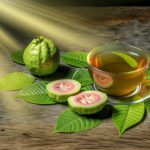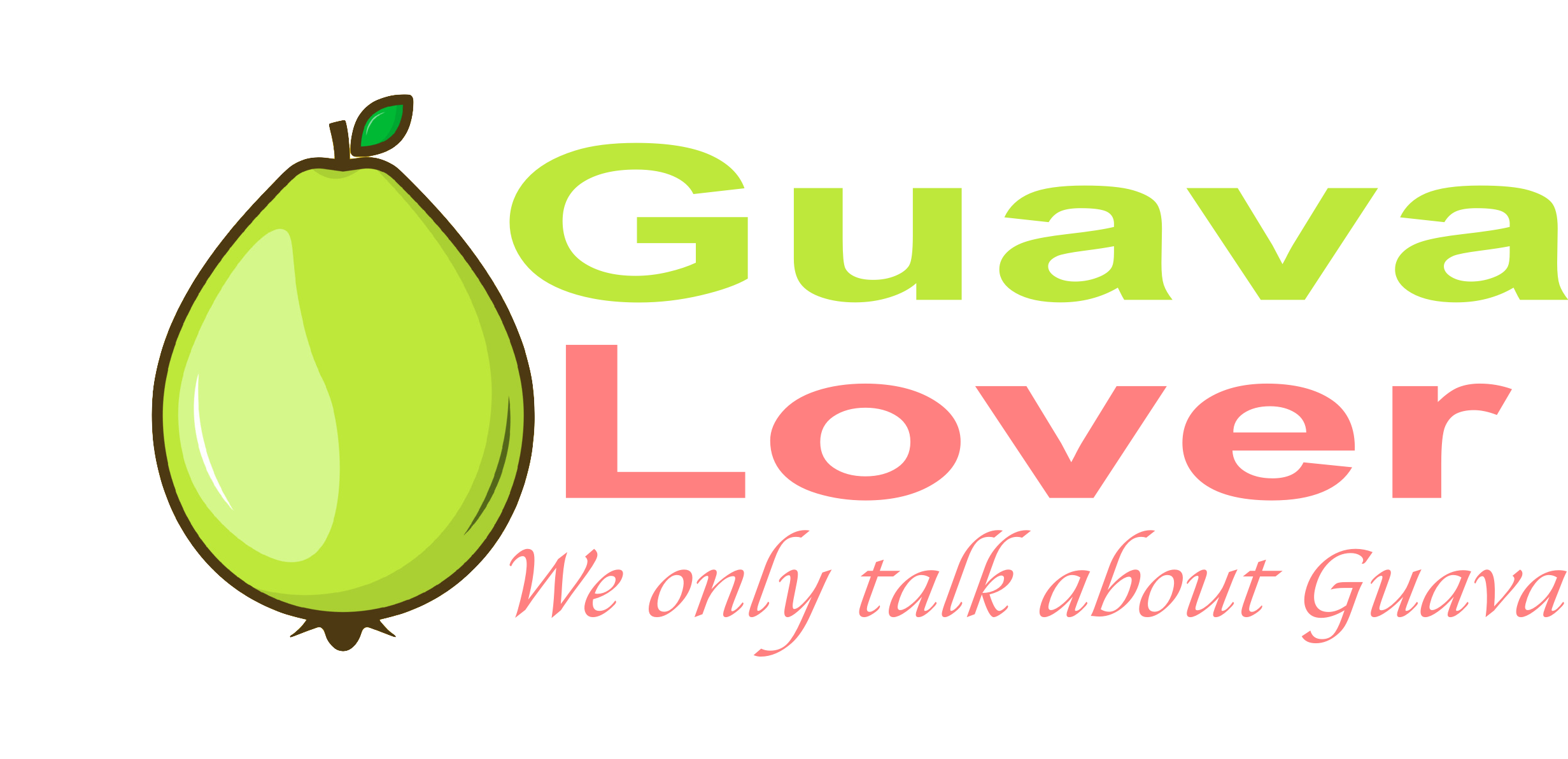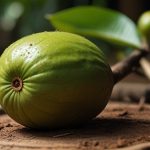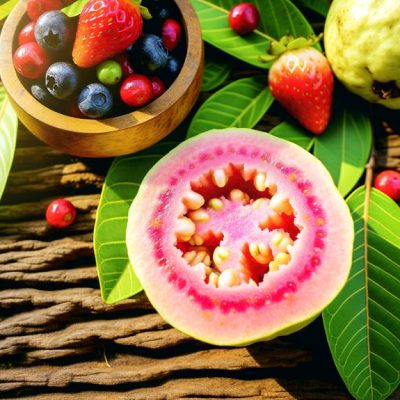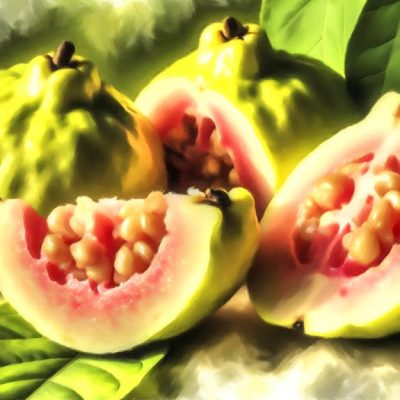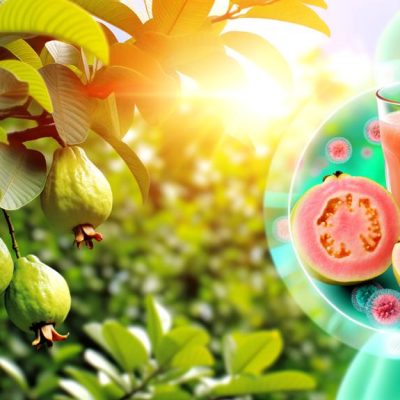Guava Fruit in Folk Medicine
Explore the rich historical tapestry of guava fruit in folk medicine, revealing its transformative role in ancient civilizations and enduring traditional healing practices. From brewing guava leaves into tea to using poultices for skin conditions, guava has been revered for its therapeutic benefits. Its significance in Ayurvedic practices for its cooling effect and immune-boosting properties showcases its holistic healing potential. Delve deeper into the global folklore surrounding guava’s diverse healing applications across continents and its modern researched benefits that protect cells, stimulate the immune system, and promote overall wellbeing.
Ancient Civilizations and Guava Remedies
In ancient civilizations, guava remedies were valued for their medicinal properties and were prominently featured in traditional healing practices. The use of guava in ancient remedies dates back centuries, with folklore tales and guava traditions highlighting the fruit’s significance. Various cultures incorporated guava into their rituals, believing in its healing powers and its ability to ward off illnesses.
For example, in some societies, guava leaves were brewed into teas or used in poultices to treat wounds and infections. The fruit itself was consumed to boost immunity and aid in digestion. These practices weren’t only rooted in the belief of guava’s healing properties but also in the cultural significance attached to the fruit.
Furthermore, guava was often associated with purification rituals and ceremonies, symbolizing health and vitality. Its presence in these ancient traditions showcases the deep-rooted connection between guava and traditional healing methods, demonstrating how this fruit has been a staple in folk medicine for generations.
Guavas Role in Traditional Healing
Playing a significant role in traditional healing practices, guava’s therapeutic properties have long been recognized and utilized across various cultures and civilizations. Guava’s role in traditional healing is deeply rooted in its medicinal properties, making it a valuable resource for addressing various health concerns.
Here are some ways guava has been used in traditional healing:
- Healing Rituals: Guava leaves and fruits are often incorporated into healing rituals to promote physical and spiritual well-being.
- Spiritual Remedies: In some cultures, guava is believed to possess spiritual qualities that can ward off negative energy and promote positivity.
- Herbal Infusions: Guava leaves are commonly used to prepare herbal infusions believed to aid in digestion, reduce inflammation, and boost the immune system.
- Topical Applications: Guava extracts are applied topically to treat skin conditions such as wounds, cuts, and acne due to their antibacterial and anti-inflammatory properties.
These traditional uses of guava highlight its versatile nature in providing holistic healing solutions.
Cultural Significance of Guava Fruit
Having explored guava’s role in traditional healing practices, it is imperative to now examine the cultural significance of the guava fruit in various societies and contexts. Guava holds deep symbolism and is often integrated into rituals in many cultures worldwide. In some regions, the guava tree is believed to bring good luck and prosperity, leading to its incorporation in ceremonies and celebrations. Moreover, guava folklore is rich with tales of its mystical properties, with superstitions surrounding the fruit’s consumption for health and fortune.
| Guava Symbolism | Guava Rituals | Guava Folklore | Guava Superstitions |
|---|---|---|---|
| Represents fertility and abundance | Used in weddings for blessings | Stories of guava trees protecting homes from evil spirits | Eating guava seeds brings wealth |
| Signifies resilience and strength | Offerings made to deities for protection | Legends of guava leaves curing ailments | Placing guava leaves under the pillow aids in restful sleep |
| Associated with rejuvenation and renewal | Guava leaves used in purification ceremonies | Belief in guava leaves warding off negative energy | Hanging guava branches at home wards off illnesses |
Historical Uses in Herbal Medicine
Exploring the historical uses of guava in herbal medicine reveals a rich tapestry of traditional remedies and healing practices passed down through generations. Throughout history, guava has held a significant place in medicinal folklore, with various cultures utilizing different parts of the plant for therapeutic purposes.
- Guava leaves were brewed into a tea: Ancient healers often used guava leaf infusions to treat ailments such as diarrhea and stomachaches.
- Guava bark decoctions: The bark of the guava tree was boiled to create a potent decoction believed to have antimicrobial properties, used for wound healing and infections.
- Guava fruit poultices: Mashed guava fruit was applied topically as a poultice to alleviate skin conditions and promote healing.
- Guava root extracts: In some cultures, guava roots were processed into extracts thought to possess anti-inflammatory properties, used to ease pain and inflammation.
These historical practices highlight the diverse ways in which guava has been integrated into traditional herbal medicine across different societies.
Guava Leaf Infusions and Tinctures
Have guava leaf infusions and tinctures been studied for their potential health benefits in modern scientific research?
Guava leaf infusions, commonly prepared as herbal teas, have gained attention for their various benefits. Research has shown that guava leaf tea may help regulate blood sugar levels, promote weight loss, and boost the immune system due to its high antioxidant content. These natural remedies have a long history in folklore as treatments for diarrhea, stomachaches, and even menstrual problems.
In recent years, scientific studies have supported some of these traditional uses. For instance, guava leaf infusions have been found to possess antimicrobial properties, potentially aiding in fighting off infections. Additionally, the tannins present in guava leaves may have anti-inflammatory effects, making them useful for alleviating pain and reducing swelling.
The use of guava leaf tinctures, while less common than infusions, is also being explored for its potential health benefits. Tinctures are concentrated extracts that can be added to water or other liquids for consumption. As research into the medicinal properties of guava leaves continues, these natural remedies may become more widely recognized for their therapeutic effects.
Guava Poultices and Compresses
Guava poultices and compresses are traditional remedies made from guava leaves that are applied externally to the skin for various therapeutic purposes. These natural remedies have been utilized for centuries in herbal therapy due to their healing properties.
- Anti-inflammatory Effects: Guava poultices can help reduce inflammation when applied to affected areas, making them valuable for conditions like arthritis or muscle strains.
- Wound Healing: The antimicrobial properties of guava leaves aid in wound healing when used as a poultice or compress, preventing infections and promoting faster recovery.
- Skin Soothing: Applying guava compresses can help soothe skin irritations such as rashes or insect bites, offering relief and calming the affected area.
- Muscle Relaxation: The application of guava poultices on tense muscles can provide a relaxing effect, easing discomfort and promoting muscle relaxation through traditional practices.
Guava Fruit in Ayurvedic Practices
In Ayurvedic practices, the utilization of guava fruit is deeply rooted in traditional medicinal applications and dietary recommendations. Ayurveda, an ancient Indian system of medicine, values guava for its numerous healing properties. The fruit is considered to have a cooling effect on the body, making it particularly beneficial for balancing the Pitta dosha. Guava is rich in vitamin C, fiber, and antioxidants, making it a valuable ingredient in Ayurvedic healing formulations.
According to Ayurvedic principles, guava is believed to aid digestion, boost the immune system, and promote overall well-being. The fruit is often used in Ayurvedic remedies to treat conditions such as diarrhea, dysentery, and constipation due to its astringent properties. Guava leaves are also utilized in Ayurveda for their medicinal benefits, including managing blood sugar levels and promoting heart health.
In Ayurvedic practices, guava is recognized for its versatile medicinal properties, making it a valuable addition to a balanced diet and holistic wellness routine.
Guava Folk Remedies Across Continents
Across continents, traditional societies have woven guava fruit into their folk remedies, showcasing its diverse healing potential and cultural significance. The global traditions surrounding guava as a medicinal fruit are rich and varied, with each culture bringing its unique touch to the applications of this versatile fruit.
Here are some fascinating examples:
- In Latin America, guava leaves are often used to make a tea that’s believed to help with digestion and alleviate stomach issues.
- In Asia, particularly in the Philippines, guava is used topically as a natural remedy for skin conditions like acne and wounds due to its antimicrobial properties.
- In Africa, guava is traditionally consumed to help manage diabetes and lower blood sugar levels.
- In the Caribbean, guava is a popular ingredient in traditional herbal remedies for coughs and colds, showcasing its versatility in addressing respiratory issues.
These diverse folk remedies highlight the widespread recognition of guava’s healing properties and its integral role in traditional medicine across the globe.
Modern Research on Guava Benefits
Exploring modern research findings reveals the scientific validation of guava’s traditional healing properties and sheds light on its potential health benefits in diverse contexts. Guava is a powerhouse of nutrients, and recent studies have highlighted its remarkable antioxidant properties, which help combat oxidative stress and reduce the risk of chronic diseases. Additionally, guava has been shown to provide excellent immune support, enhancing the body’s ability to fight off infections and illnesses.
| Benefits | Details | Research Studies |
|---|---|---|
| Antioxidant properties | Guava is rich in vitamin C and other antioxidants that protect cells from damage. | (Source 1), (Source 2) |
| Immune support | Compounds in guava stimulate the immune system, improving its response to pathogens. | (Source 3), (Source 4) |
| Gut health | The high fiber content of guava promotes digestive health and helps prevent constipation. | (Source 5), (Source 6) |
| Skin benefits | Guava extracts have shown potential in improving skin texture and reducing signs of aging. | (Source 7), (Source 8) |
Frequently Asked Questions
Can Guava Fruit Be Used as a Natural Remedy for Skin Conditions Such as Acne or Eczema?
Guava benefits are known for treating skin conditions like acne and eczema. Its effectiveness lies in its anti-inflammatory and antioxidant properties which can help soothe and heal the skin. Consider incorporating guava into your skincare routine.
Are There Any Superstitions or Myths Surrounding Guava Fruit in Traditional Medicine Practices?
In traditional medicine practices, superstitions and folklore often surround guava fruit. People believe in its mystical healing powers for various ailments. These myths have been passed down through generations, shaping how guava is perceived in cultural remedies.
How Did Guava Fruit Come to Be Associated With Specific Cultural or Religious Beliefs?
Cultural symbolism and religious associations with guava fruit have deep roots. Folklore origins intertwine with healing properties, shaping beliefs over time. Guava’s significance in various cultures transcends mere fruit, embodying centuries-old traditions and spiritual connections.
Are There Any Historical Anecdotes or Stories About Guava Fruit Being Used for Medicinal Purposes?
In history, guava fruit’s medicinal uses have been richly documented. Historical anecdotes showcase its diverse applications, from treating digestive issues to wound healing. The stories surrounding guava’s healing properties have endured through generations.
Are There Any Traditional Rituals or Ceremonies Involving Guava Fruit in Folk Medicine Practices?
In various cultures, guava fruit is central to ritualistic ceremonies and traditional remedies. Folklore and cultural beliefs often attribute healing properties to guavas, leading to their inclusion in ancient practices that honor nature’s gifts.
Conclusion
To wrap up, the historical use of guava fruit in folk medicine showcases its significant role in traditional healing practices across ancient civilizations. From guava leaf infusions to poultices, this fruit has been valued for its medicinal properties for centuries. Its cultural significance and widespread use in Ayurvedic practices highlight the enduring importance of guava in promoting health and wellbeing. Modern research continues to explore and validate the numerous benefits of this versatile fruit in supporting overall wellness.

